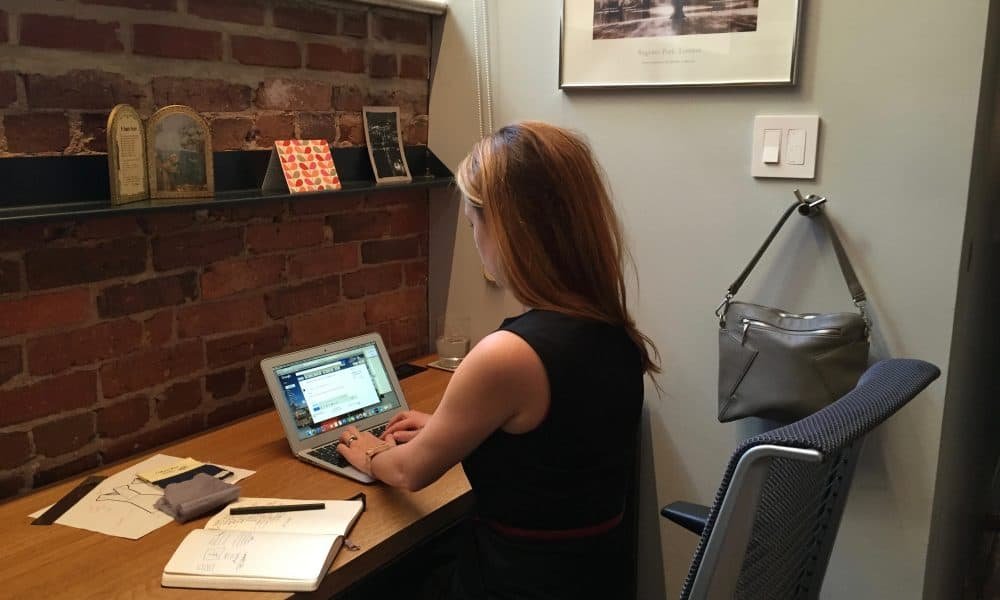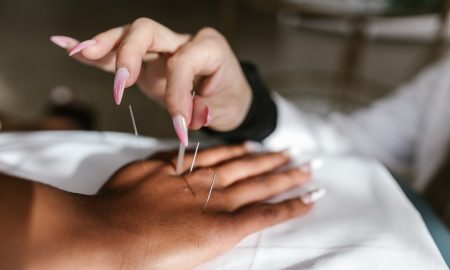
Maven: The Story of How a Woman’s Health Business Won in a Man’s World

It all started with an idea based on a necessity, just like any other business in the world. But what makes Maven so special is the fact that the service aimed to provide healthcare for women as its business model, an idea which obviously did not find much appeal to the male-dominated corporate world.
Yet, Maven has made it through all the obstacles and hurdles and managed to raise around $42 million in funding to sustain and grow its operations. It’s founder, Kate Ryder, is proud of all that she has achieved, and is still committed to give as much time and energy as she can to her fast-growing venture.

It all started with an idea based on a necessity, just like any other business in the world
Where It All Began
You may think that Ryder must have a background in medical science to have developed a healthcare app, but that is not the case. In the earlier part of her career, Ryder was a journalist before she moved to London to work with a venture capital firm that focused on supporting ideas working on digital healthcare solutions.
Apart from this practical exposure into the entrepreneurial world, Ryder also came across personal anecdotes shared by her friends regarding the many problems they faced with regards to pregnancy, with some either struggling with infertility or severe medical issues like miscarriages.
With the passage of time, it became crystal clear to Ryder that a gap existed in the market as far as provision of quality healthcare to women is concerned. In order to develop a better understanding of this gap, Ryder had conversations with two groups: women who were looking for an easier healthcare solution, and healthcare providers like midwives and obstetricians.
Upon consolidating her findings, Ryder reached the conclusion that a telehealth service would be best at addressing the health needs of women, one which would offer two solutions: first, it would provide access to users of specialized health-related information, and second, it would allow women to get immediate virtual care as needed.
Caption: With the passage of time, it became crystal clear to Ryder that a gap existed in the market as far as provision of quality healthcare to women is concerned
She then became fully involved with the development of her idea, and also contacted employers to discuss the possibility of including her service as part of the benefits package they offered their employees.
Making The Case for Maven
Even though Ryder had experienced the world of venture capitalists herself, she found it difficult to raise funds for her new app. A major hurdle she faced was that investors did not see any demand in the service she was proposing to offer, and one even said that this business idea would never find an investor.
Of course, the demand was definitely there. According to data, out of all the money that is spent at doctor’s offices, 57% of it is by women. In fact, around 80% of all healthcare-related decisions in any household are made by women. Hence, there is no doubt that a huge market existed for the idea which Ryder was bringing to the table.
Recognizing the fact that she may always find resistance with male venture capitalists, Ryder sought support from female investors, and thankfully she found them to be more welcoming of her idea. Fast forward to the present, and Maven’s Board of Directors has five female directors, all of whom come from various backgrounds.
Looking Forward
The company, having already raised around $42 million, plans to keep raising funds even though it does not need to anymore. Expansion is definitely the way forward, and Ryder plans on bringing 40 more people into the business, increasing her total headcount to over a hundred people. In the future, Ryder has highlighted that customers of Maven can expect to see some new services on the app, including those tailored to the needs of working women.
For the first time, Ryder believes her business, which started only three years ago, has enough funding to support its ambitious growth plans, and we can’t wait to see what kind of impact it would have on the healthcare industry in the years to come.
More in Medical Conditions
-
Endometriosis in Teens: A Guide to Understanding and Supporting Adolescents
Endometriosis, a condition often associated with adulthood, can make an unwelcome entrance during adolescence. For teenagers grappling with the complexities of...
January 23, 2024 -
Has Childhood Trauma Haunted You into Adulthood? Here’s How You Can Defeat the Past
Even without being particularly too keen about it, you must have noticed that the conversation around childhood trauma has been gaining...
January 10, 2024 -
Storing These Food Items in Your Fridge May Actually Be Bad For You
People have a tendency to just stash a lot of things inside their refrigerators. Oftentimes, you don’t even remember what’s inside...
January 10, 2024 -
How to Deal With Holiday Stress
We all feel stressed from time to time, but the holidays offer their own special stressors that can make us feel...
December 21, 2023 -
Tips to Develop a More Focused Mind
Do you ever feel you’re always busy and the days are progressively getting shorter? Are you constantly stressed out and unable...
December 21, 2023 -
How To Develop A Healthy Relationship With Weight
Most of us have a complicated relationship with weight and spend most of our days on the scale, letting our minds...
December 21, 2023 -
Advantages of Offering Health and Wellness Benefits to Employees
Employers frequently struggle to provide the benefits that their employees desire, such as health insurance or paid overtime. Changes to federal...
December 21, 2023 -
Can Acupuncture Help Prevent Type 2 Diabetes?
In today’s world, health conditions like cardiovascular diseases, hypertension, and diabetes are becoming more and more common. It is extremely important...
December 4, 2023 -
Did You Know There’s A Tiny Farm In A Berlin Supermarket?
When you go to a grocery store, you head over to the fresh foods aisle where you pick up things like...
December 4, 2023

















You must be logged in to post a comment Login